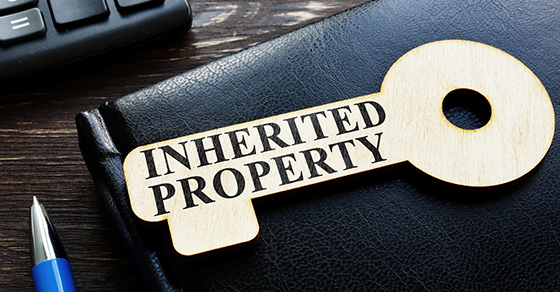If you’re planning your estate, or you’ve recently inherited assets, you may be unsure of the “cost” (or “basis”) for tax purposes.

The current rules
Under the current fair market value basis rules (also known as the “step-up and step-down” rules), an heir receives a basis in inherited property equal to its date-of-death value. So, for example, if your grandmother bought stock in 1935 for $500 and it’s worth $1 million at her death, the basis is stepped up to $1 million in the hands of your grandmother’s heirs — and all of that gain escapes federal income tax.
The fair market value basis rules apply to inherited property that’s includible in the deceased’s gross estate, and those rules also apply to property inherited from foreign persons who aren’t subject to U.S. estate tax. It doesn’t matter if a federal estate tax return is filed. The rules apply to the inherited portion of property owned by the inheriting taxpayer jointly with the deceased, but not the portion of jointly held property that the inheriting taxpayer owned before his or her inheritance. The fair market value basis rules also don’t apply to reinvestments of estate assets by fiduciaries.
Gifting before death
It’s crucial to understand the current fair market value basis rules so that you don’t pay more tax than you’re legally required to.
For example, in the above example, if your grandmother decides to make a gift of the stock during her lifetime (rather than passing it on when she dies), the “step-up” in basis (from $500 to $1 million) would be lost. Property that has gone up in value acquired by gift is subject to the “carryover” basis rules. That means the person receiving the gift takes the same basis the donor had in it ($500 in this example), plus a portion of any gift tax the donor pays on the gift.
A “step-down” occurs if someone dies owning property that has declined in value. In that case, the basis is lowered to the date-of-death value. Proper planning calls for seeking to avoid this loss of basis. Giving the property away before death won’t preserve the basis. That’s because when property that has gone down in value is the subject of a gift, the person receiving the gift must take the date of gift value as his basis (for purposes of determining his or her loss on a later sale). Therefore, a good strategy for property that has declined in value is for the owner to sell it before death so he or she can enjoy the tax benefits of the loss.
Change on the horizon?
Be aware that President Biden has proposed ending the ability to step-up the basis for gains in excess of $1 million. There would be exemptions for family-owned businesses and farms. Of course, any proposal must be approved by Congress in order to be enacted.
These are the basic rules. Other rules and limits may apply. For example, in some cases, a deceased person’s executor may be able to make an alternate valuation election. Contact us for tax assistance when estate planning or after receiving an inheritance. We’ll keep you up to date on any tax law changes.
- Evaluate whether a Health Savings Account is beneficial to you - September 19, 2023
- Investment swings: What’s the tax impact? - September 12, 2023
- Plan now for year-end gifts with the gift tax annual exclusion - September 5, 2023
- Selling your home for a big profit? Here are the tax rules - August 29, 2023
- The tax consequences of employer-provided life insurance - August 22, 2023









